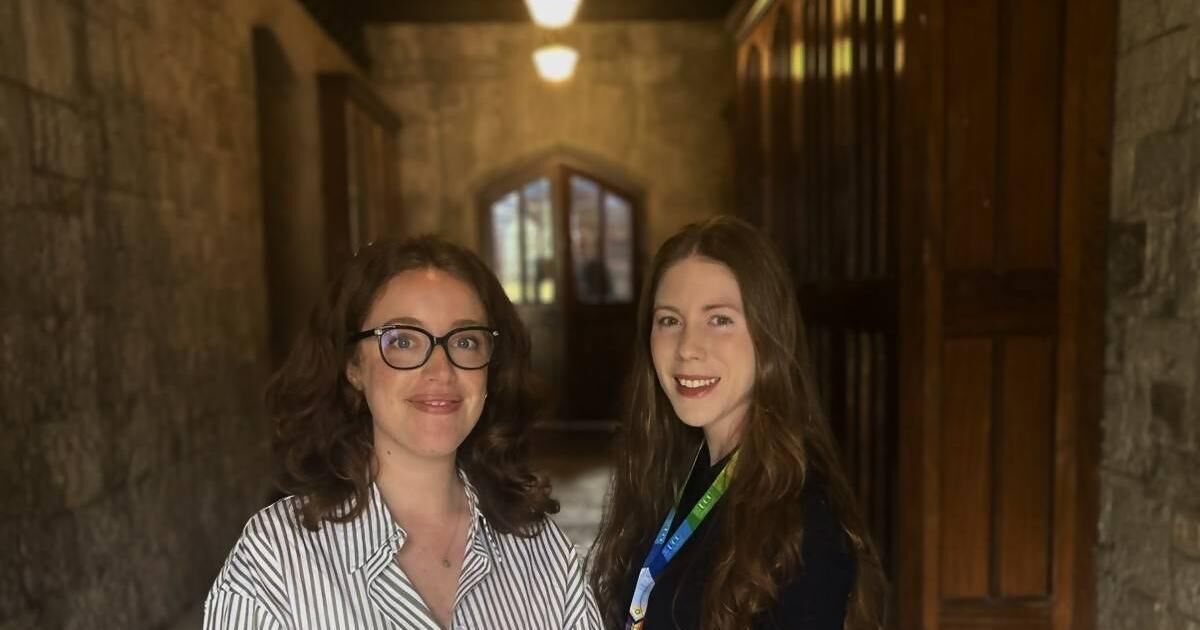Delays in diagnosis are well-documented across women’s health, and many patients report feeling disbelieved or having their symptoms minimised.
It’s one thing to suffer chronic, debilitating pain and struggle to access appropriate treatment for it. It’s quite another to have symptoms dismissed by the doctors who are supposed to help. “Things like symptom minimisation, normalisation and dismissal – we commonly call that medical gaslighting”, elaborates Jenny Cooney-Quane, a Research Associate in the School of Applied Psychology at University College Cork (UCC).
She and her colleague, Dr Sarah Foley, a lecturer at the School, have just launched a landmark study on women’s experiences seeking diagnosis for chronic health conditions.
“We’ve been doing research into women’s health for a couple of years now at the School of Applied Psychology”, says Dr Foley. “And we always have stories repeated back to us about diagnostic delays… I think it’s very well established that there’s lots of gaps in women’s health research and understanding, and what’s been really positive in the last few years is to see more attention paid to that.”
This new focus on women’s health, however, has raised questions about what can be done to narrow the gender health gap and ensure a more positive experience for women seeking diagnosis. This study aims to assist with this.
The researchers are seeking responses from women, non-binary individuals, and trans men who suffer with endometriosis, migraines, postural orthostatic tachycardia syndrome (POTS), premenstrual dysphoric disorder (PMDD) and mast cell activation syndrome (MCAS).
These conditions are known to have long diagnostic delays and are often comorbid with each other, meaning that people with one will frequently also have one of the others.
“What we’re really interested in is the experiences that women have when they’re seeking diagnosis,” explains Cooney-Quane. “There is a good bit of research already around endometriosis, but there’s less data in an Irish context on the other health conditions.”
As lead researcher and principal investigator of the project respectively, Cooney-Quane and Dr Foley worked closely with a Patient and Public Involvement (PPI) panel – made up of members of the public and patients with the chronic conditions under consideration – to ensure they are fully involved in every step of the study. The researchers describe the PPI panel’s involvement as “invaluable in guiding the study’s design, ensuring it reflects patient lived experience and priorities”.
“So many of us were told our debilitating, life-ruining symptoms were normal”, one member of the PPI panel – who chooses to remain anonymous – shares. “Nothing to be concerned about, just anxiety. You can spend a decade trying to get someone to take you seriously and then spend three years on a waiting list to be seen by someone else and still be dismissed”. The panel member describes this study as “so important and so validating”.
The research will also explore how Irish women use symptom-tracking apps to document their health experiences. Many of the chronic conditions under consideration as part of the study are linked to the menstrual cycle, for which numerous tracking apps exist and are used daily by women.
The researchers are keen to investigate how such apps can be used as part of the pathway to diagnosis.
“Symptom-tracking apps could have a huge potential for tracking the symptoms of these conditions across the menstrual cycle and can be really helpful to bring to the doctor when seeking diagnosis,” explains Cooney-Quane.
“We’re interested in doctors’ reactions to being shown this data because some doctors are really open to it, whereas others aren’t interested or don’t have the time or understanding to look at the data.”
The Health Innovation Hub at UCC recently identified the FemTech industry as one with significant economic potential in Ireland, with opportunities existing to integrate health technologies into national innovation strategies for women’s health.
Cooney-Quane and Dr Foley hope that symptom-tracking for chronic conditions could be one such opportunity, and intend to use the findings of the study to make recommendations to health providers and tech developers on how these apps could be used and improved.
“There is important innovation taking place,” explains Dr Foley. “And we just want to ensure that we’re contributing the evidence to support any kind of technology development”.
Other aims of the study include achieving a sense of scale of the problem of diagnostic delays and symptom dismissal in Ireland, and making recommendations to public and private healthcare providers on addressing the gender health gap.
The researchers are looking for a wide range of experiences to build an accurate picture of the current landscape – this includes positive interactions with healthcare professionals, from which best practice examples can be derived.
As Cooney-Quane explains: “We are not coming at this from a negative point of view. We are really interested in what doctors are doing well and feel like we can learn from that.”
The researchers are keen to stress that they are also seeking input from non-binary individuals, trans men and women from minority ethnic groups – populations who are historically marginalised even further within health systems.
“We know there’s massive gender bias in healthcare for women,”notes Cooney-Quane, “but if you are from a gender or ethnic minority, these challenges are just compounded”.
Views are also welcomed from any patient who has sought healthcare via the private or public system, or who has travelled abroad for diagnosis or treatment.
Patients on the PPI panel are enthusiastic about this research, and hopeful that it will make strides in the advancement of women’s health in Ireland.
One member of the panel said: “This long-overdue research is crucial in finally addressing the persistent healthcare barriers women face. My symptoms began in childhood but weren’t diagnosed until my 40s. Finding effective consultant care took years of personal effort and research. The healthcare system remains outdated, inconsistent, and largely unsupportive of women – it needs reform.
“Hopefully, the results of the research will expose the areas that are letting women down during their vulnerable periods of ill health.”
